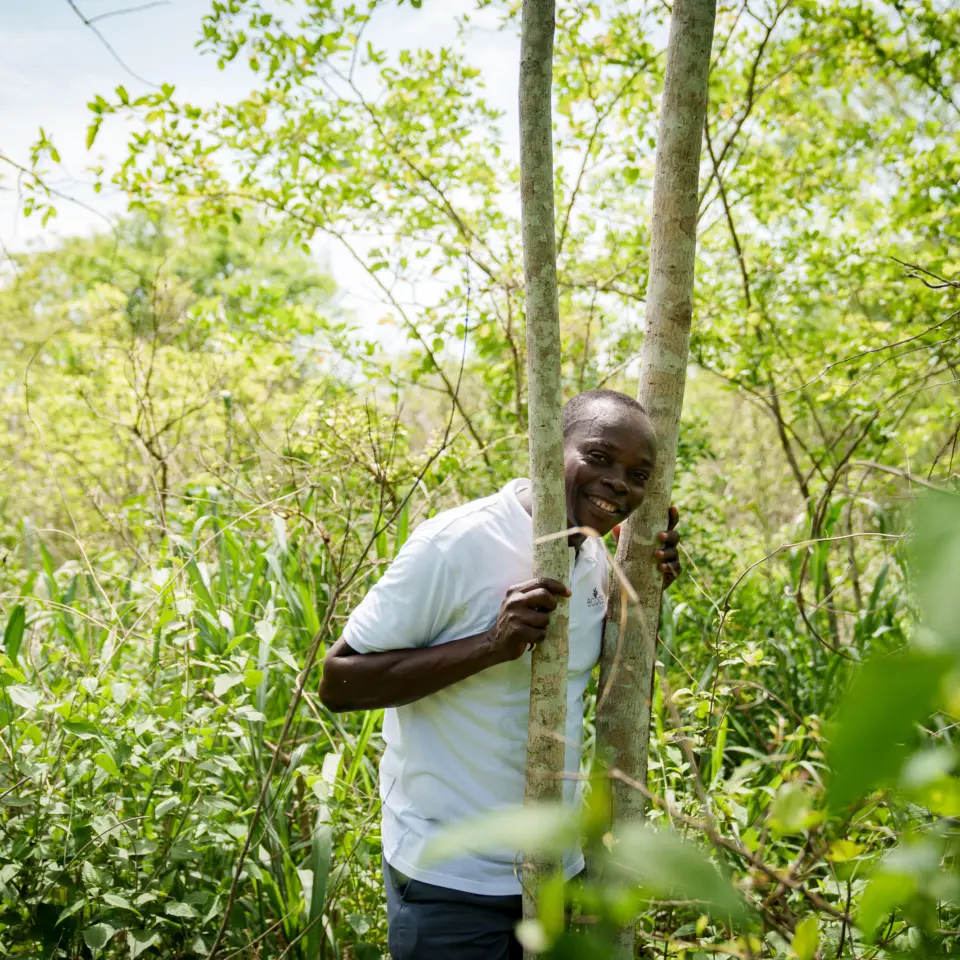
PROJECT TOGO
Substantial forest restoration. CO₂ sequestration, biodiversity and social development – implemented operationally, not purchased.
Natural forest restoration. Clearly documented. Designed for the long term.
PROJECT TOGO is our own natural forest restoration project in Togo. We have been active on the ground since 2010. Official project start: 2012. No purchased certificate. No intermediary. We develop, oversee and document the project ourselves – professionally, structurally and with a long-term perspective.
A Project with a Development History
PROJECT TOGO began as a certified afforestation project under the CarbonFix standard.
Following the transition to the Gold Standard, it continued first as a Transition Project and later as a full Gold Standard project.
In 2018, the Gold Standard introduced a new accounting model based on so-called Performance Emission Reductions (PERs). Certificates are now more strongly linked to already verified performance.
For energy projects, this logic is reasonable and technically sound.
Emission reductions are continuous and clearly measurable.
Afforestation projects follow a different structure.
The largest financial investment occurs at the beginning: land acquisition, planting, infrastructure and maintenance.
If the accounting logic changes fundamentally during a project’s lifetime – and is applied retroactively to existing projects – the economic basis of the project shifts.
We therefore decided not to continue along the formal certification pathway and instead to carry the project forward under our own responsibility.
Since then, we have documented impact, land development and biodiversity independently and transparently. We continue to work with universities as well as accredited auditors and technical experts.
Monitoring, data collection and methodological classification are conducted in a structured and traceable way.
Not because standards are unimportant.
But because we do not outsource responsibility.
Why Africa
Reforestation has the greatest leverage where ecological and social stability are under pressure at the same time.
Climate change meets fragile structures
Africa contributes only a small share of global CO₂ emissions – yet it is disproportionately affected by climate change.
→ Rising temperatures
→ Changing rainfall patterns
→ Soil erosion
→ Declining agricultural yields
In many regions, agriculture forms the economic backbone. When soils degrade, structural risks emerge – both ecological and social.
Reforestation does not act in isolation. It stabilises soils. Improves water systems. Sequesters CO₂. Creates income opportunities.
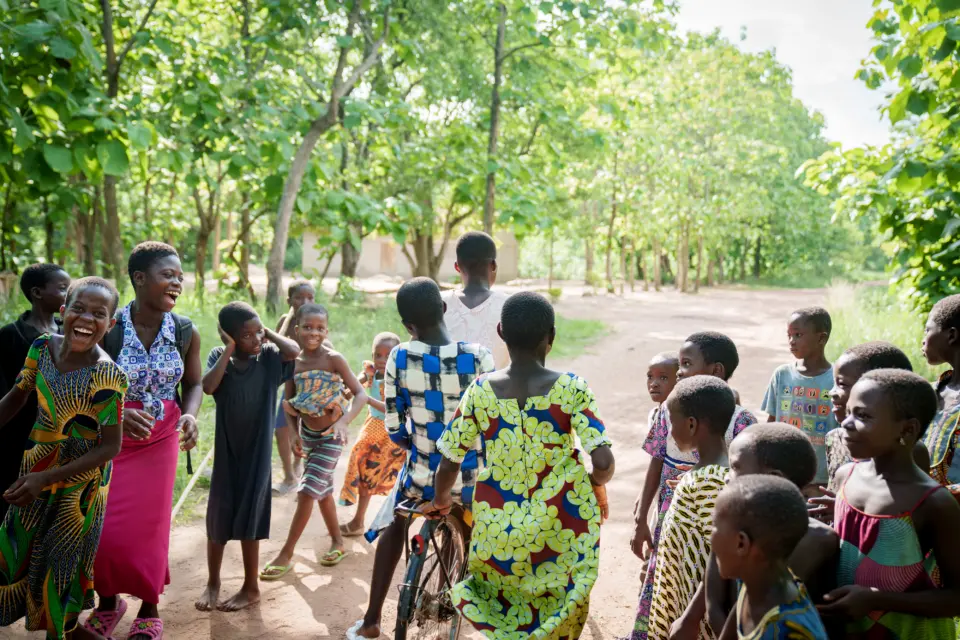
Reforestation with Structure
Well-designed reforestation projects address multiple development dimensions at once:
→ Climate protection
→ Biodiversity
→ Food security
→ Income structures
→ Education and infrastructure
Studies and experts such as Franz Josef Radermacher point out that large-scale reforestation initiatives in Africa can contribute significantly to a broad range of the UN Sustainable Development Goals.
PROJECT TOGO addresses 12 of the 17 Sustainable Development Goals –
not as a side effect, but through its project structure.
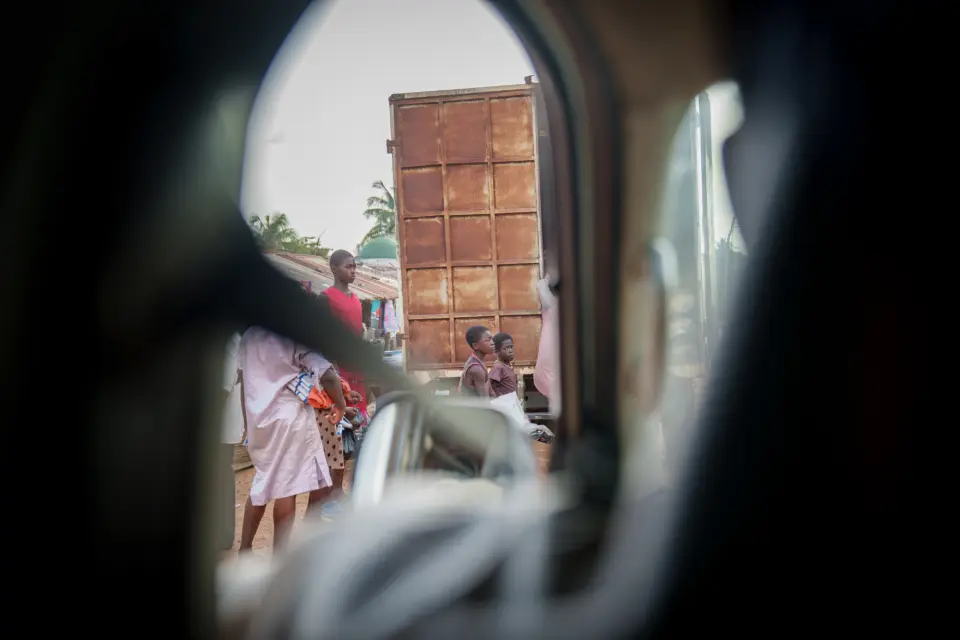
Why We Are Directly Involved
Since 2008, we have worked with CO₂ accounting and compensation projects. We review standards, calculate emissions and select projects.
At some point, it became clear:
If we assess projects, we should build one ourselves.
Not to know better. But to understand better. We have been active in West Africa since 2010. PROJECT TOGO officially started in 2012.
Afforestation sounds simple in theory.
In practice, it means securing land, raising seedlings, planting, maintaining, documenting – and dealing with setbacks. That is where the real project begins.
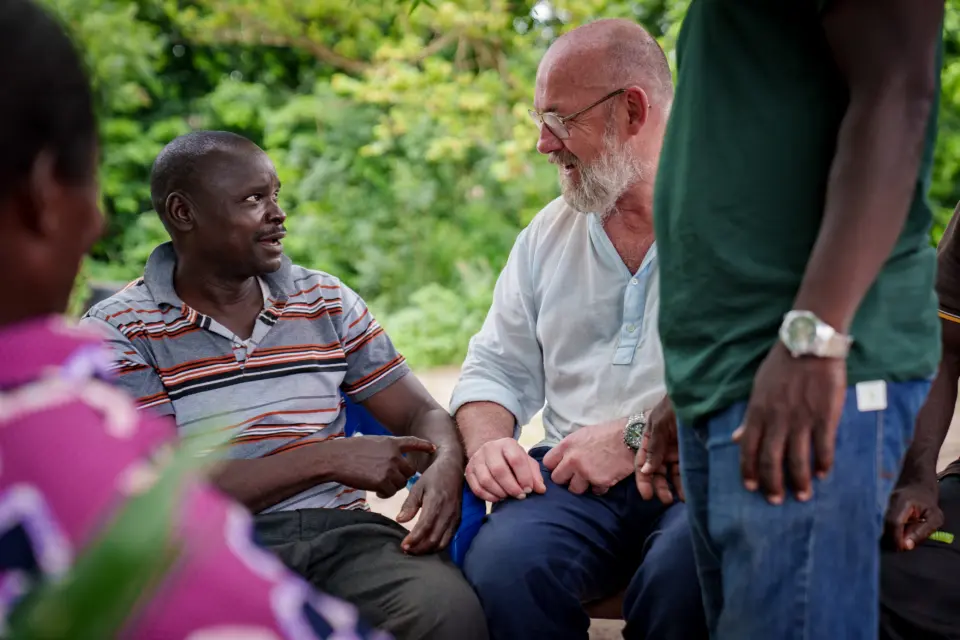
What PROJECT TOGO Means for Our Work
Practical implementation changes perspective.
Assessing projects differently
If you manage a reforestation project yourself, you look more closely. At permanence. At maintenance. At economic viability.
Differentiating compensation clearly
We understand project logic from the inside.
This helps distinguish between offsetting and contribution.Evaluating risks realistically
Afforestation is not a calculation model.
It requires land, time and stable structures.Explaining impact objectively
We know what projects can deliver – and where their limits are.
PROJECT TOGO delivers KPIs...
Status as of today.
- 8
Training programs
Knowledge that lasts: From literacy to first aid. We teach skills that change lives. Every Monday, adults learn to read and write. In courses lasting several days, we show them how to grow rice more efficiently or how to help in an emergency.
- 37
Plant species tested
Diversity instead of uniformity: our agroforestry is a living laboratory. Out of 37 tested species, 23 winners have emerged. They now grow together and make the soil fertile while binding CO₂.
- 7
Products made in Togo
Women become entrepreneurs: Palm oil, soap, peanut snacks: the women's cooperative transforms local raw materials into sought-after products. Each of these creates income and independence.
- 200
Beehives
Humming for the future: hard-working bees, hard-working beekeepers: 200 beehives not only produce honey, but also pollinate plants and thus secure the harvest. A win-win for people and nature.
- 217
Plant species documented
Biodiversity is alive: our forest is a hotspot of species diversity. 58 different tree species, over 100 woody plants - where there used to be wasteland, there is now an explosion of life.
- 130
Smoke-free ovens
Health first: No more watery eyes and coughing while cooking. Our efficient ovens save 40% wood and protect 130 families from toxic smoke. 2.5 tons of CO₂ less per year per stove.
- 6
Wells for clean water
Water march! Our wells supply entire villages with clean drinking water. Combined with WASH training, we ensure that it stays clean.
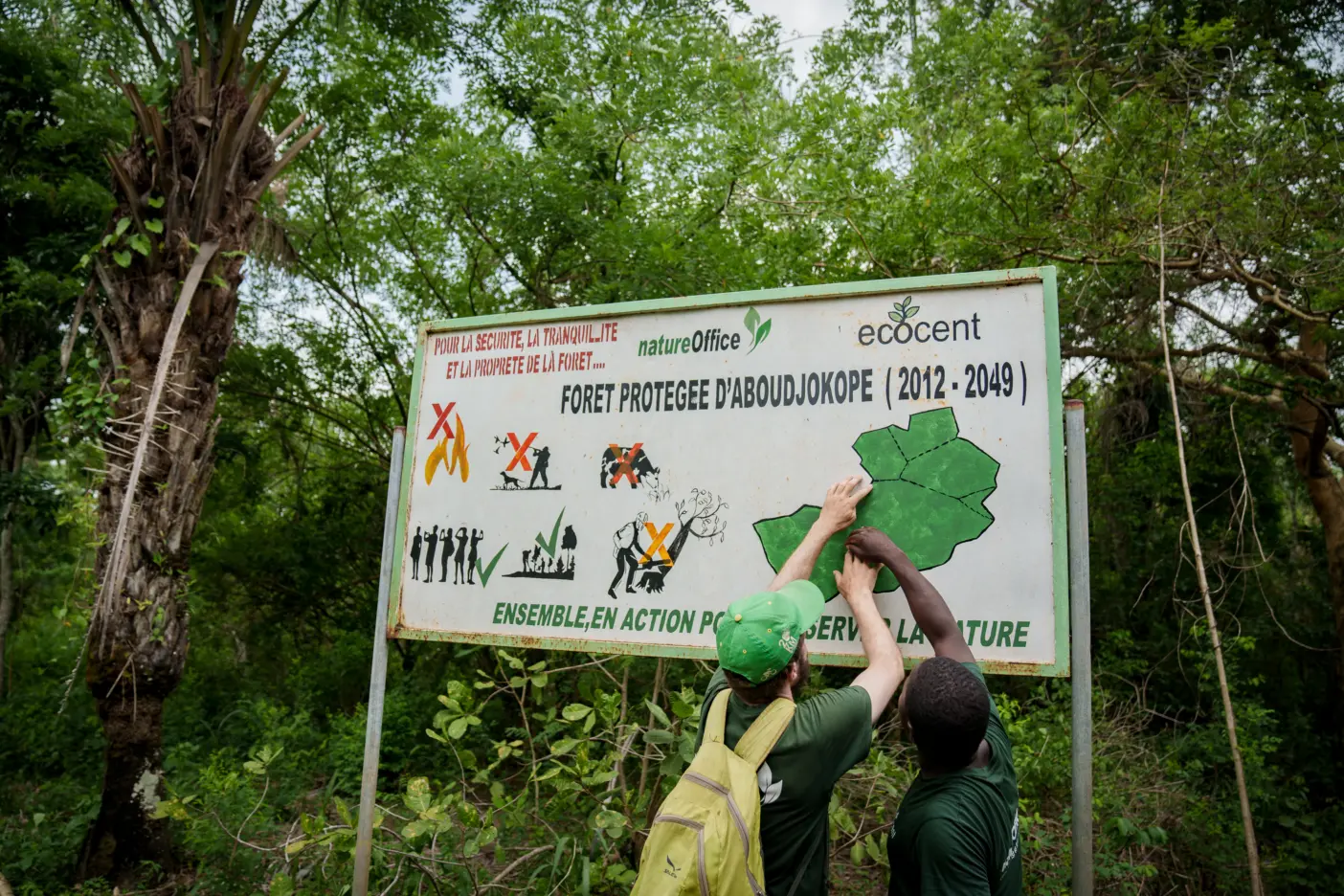
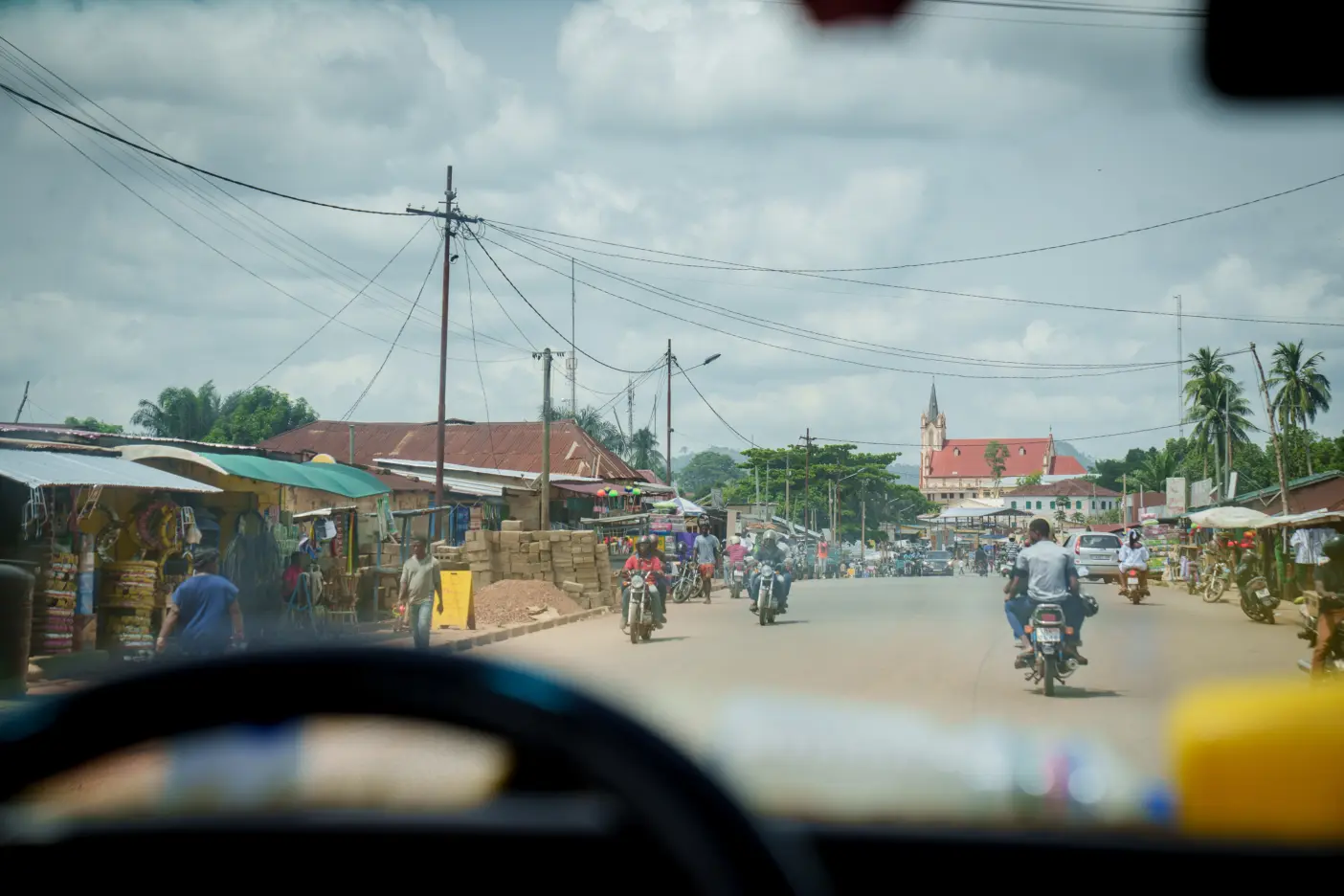
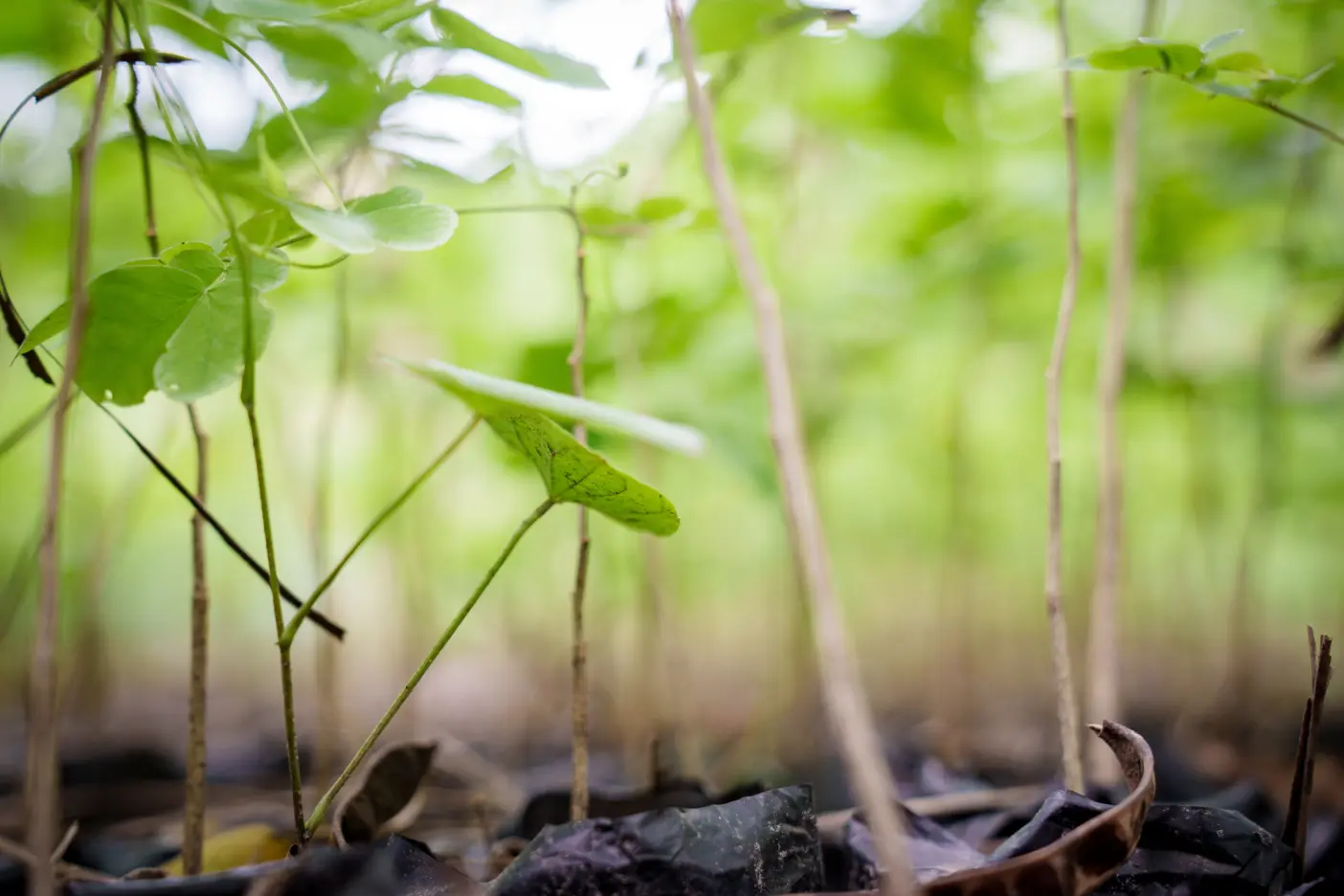
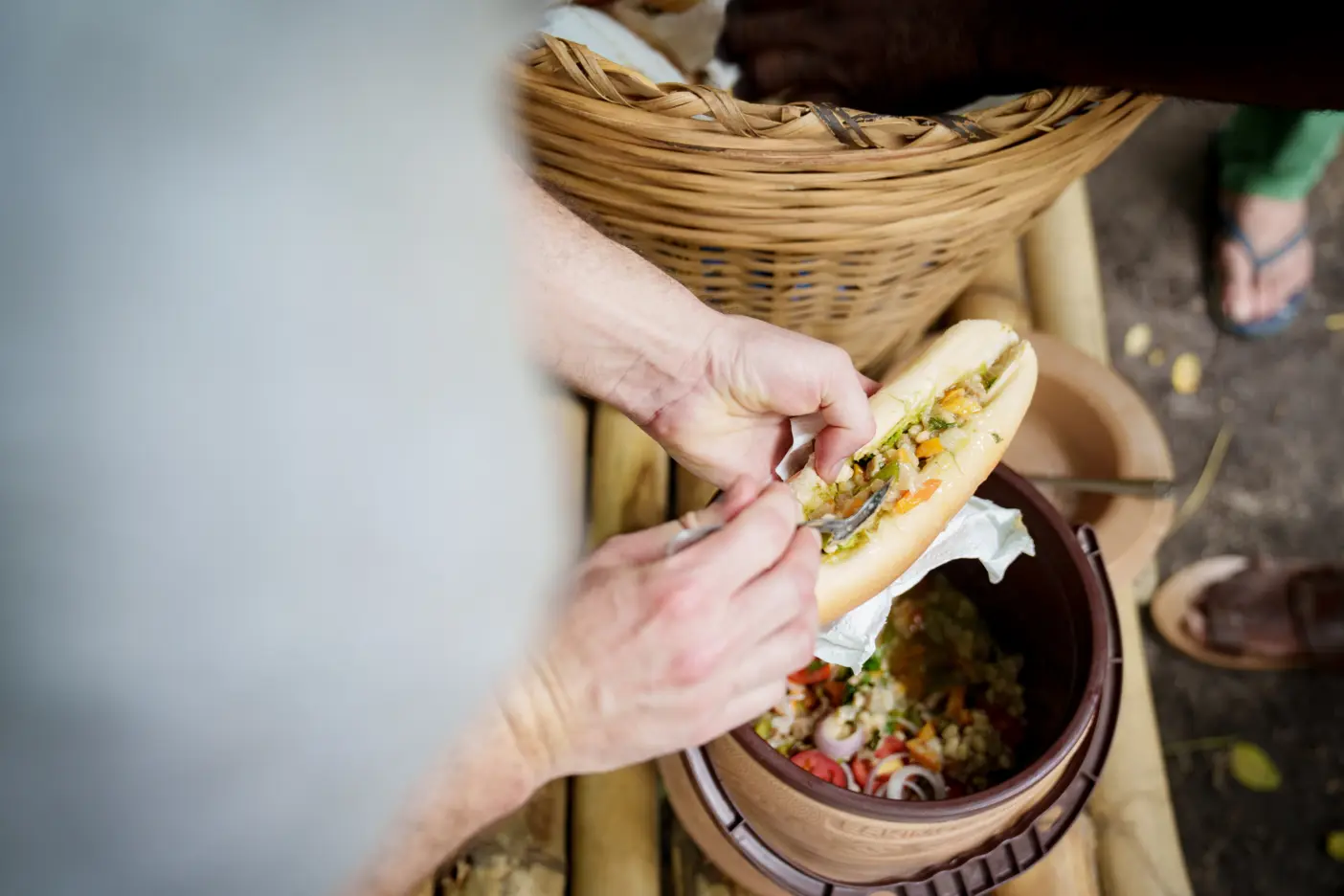
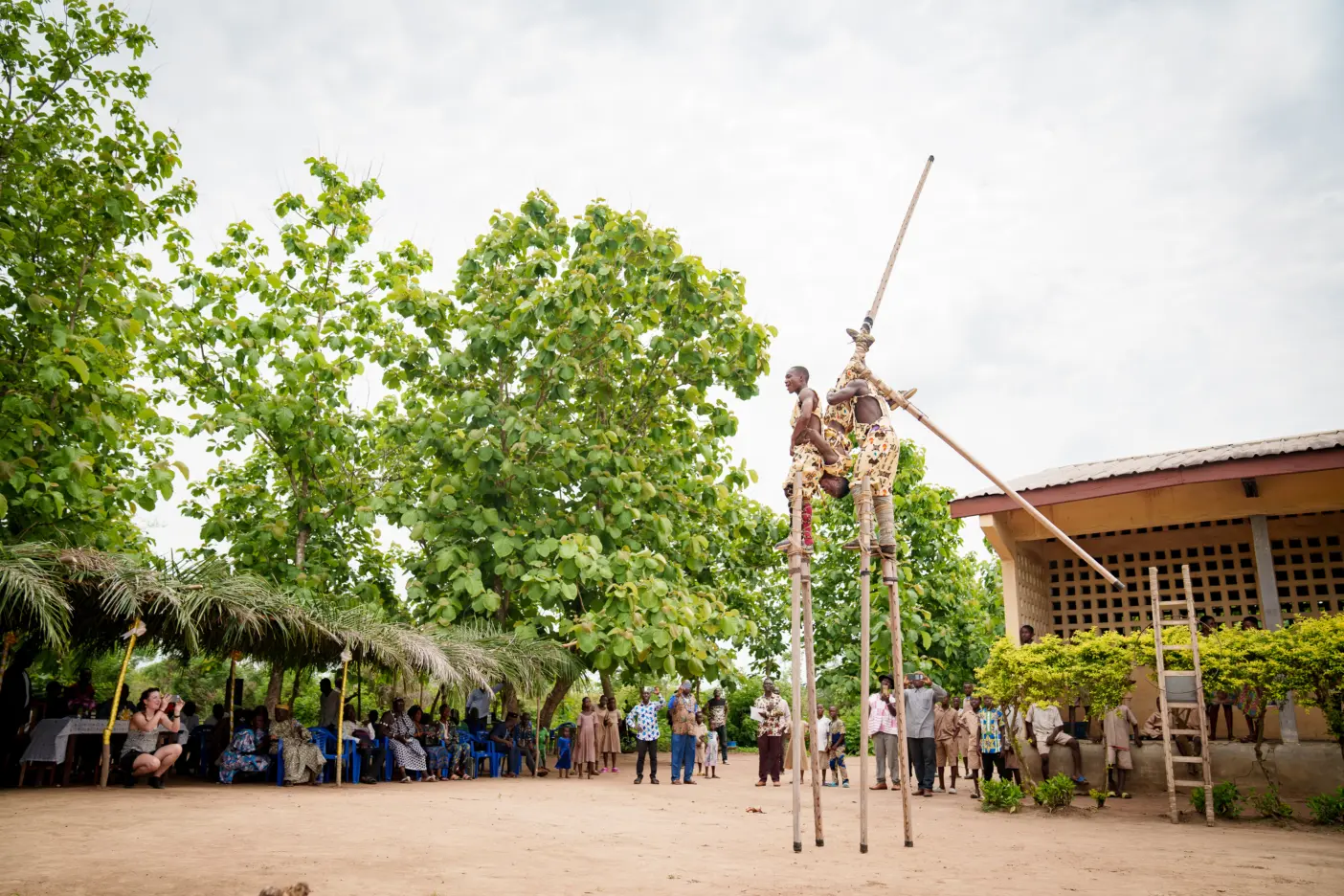
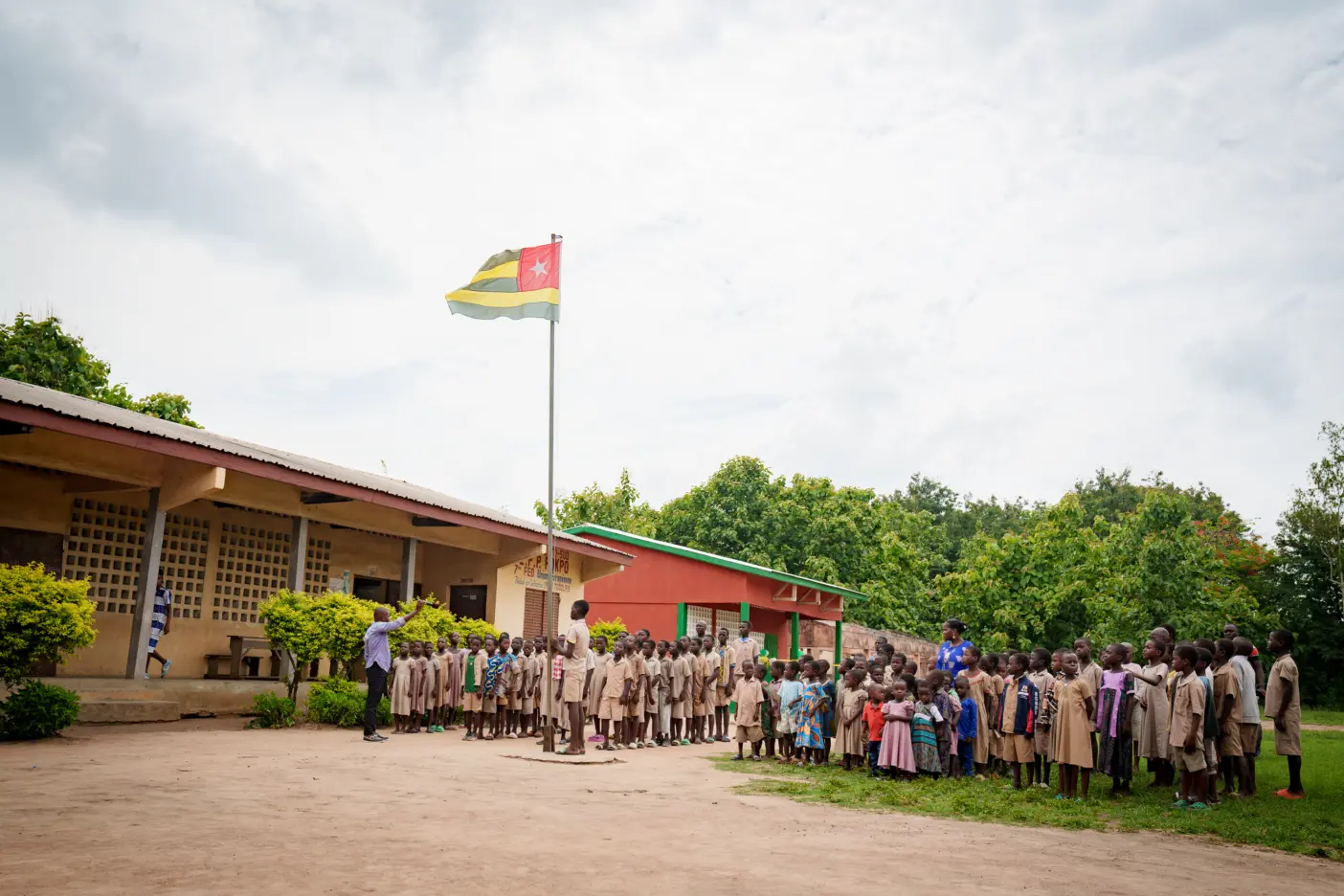
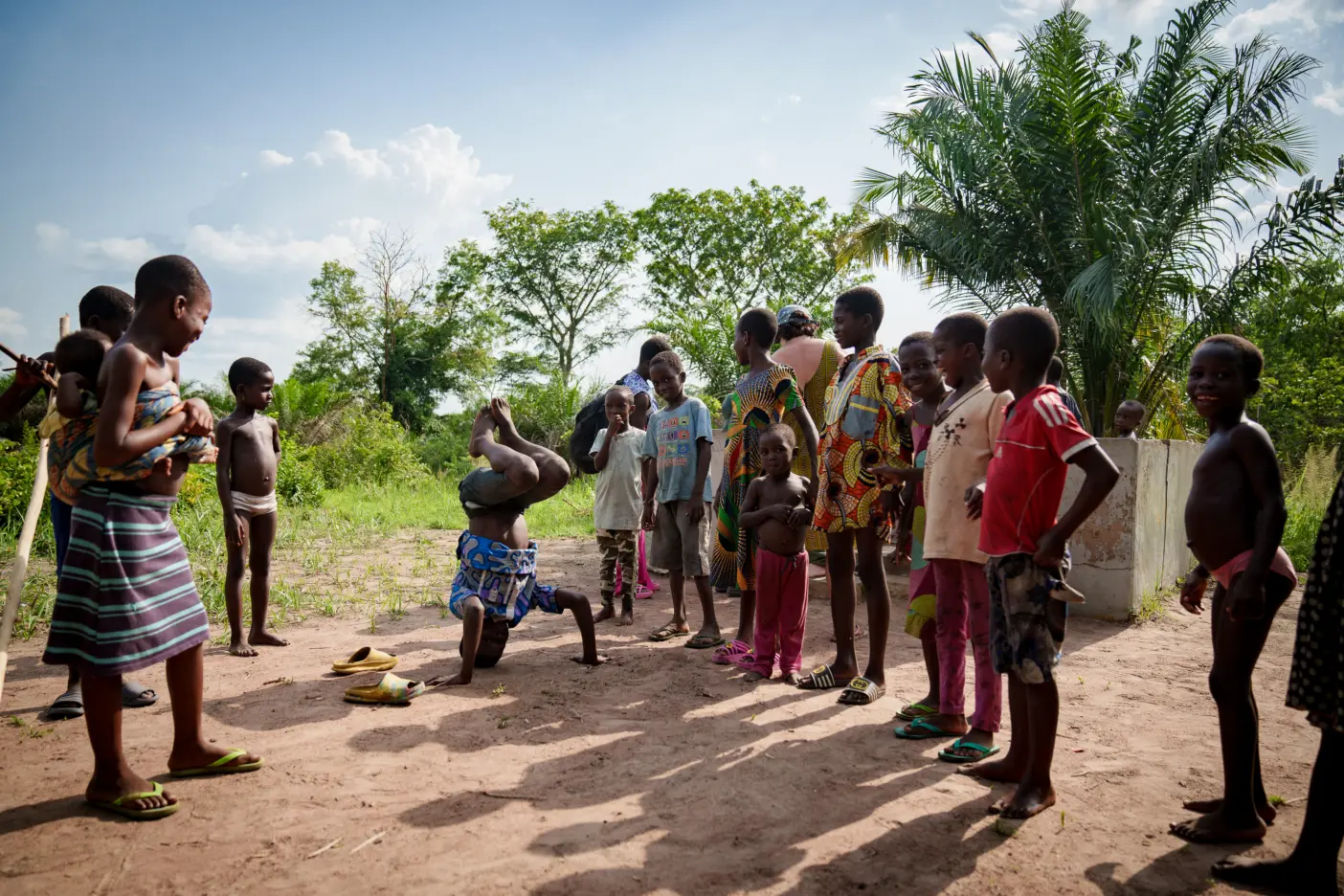
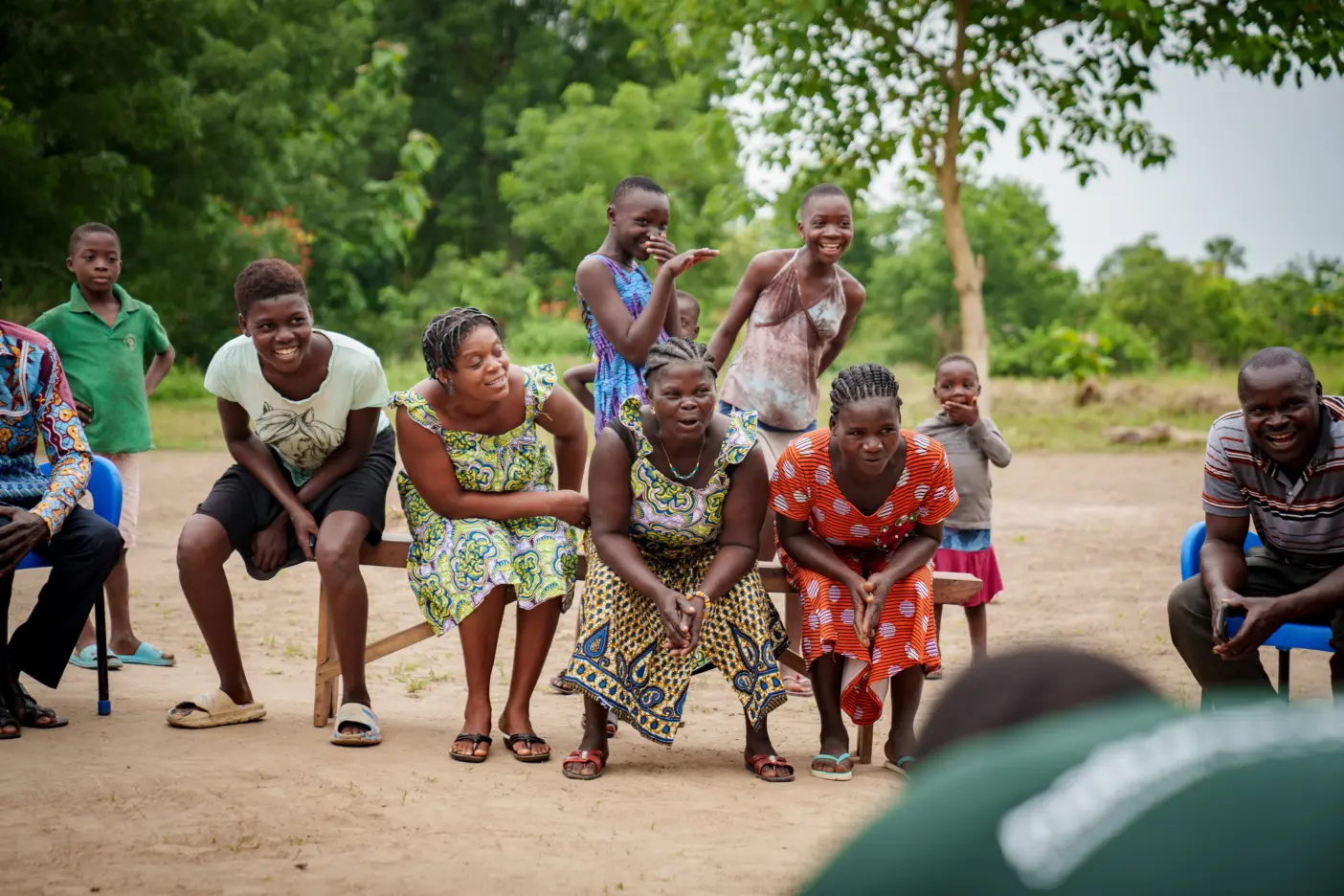
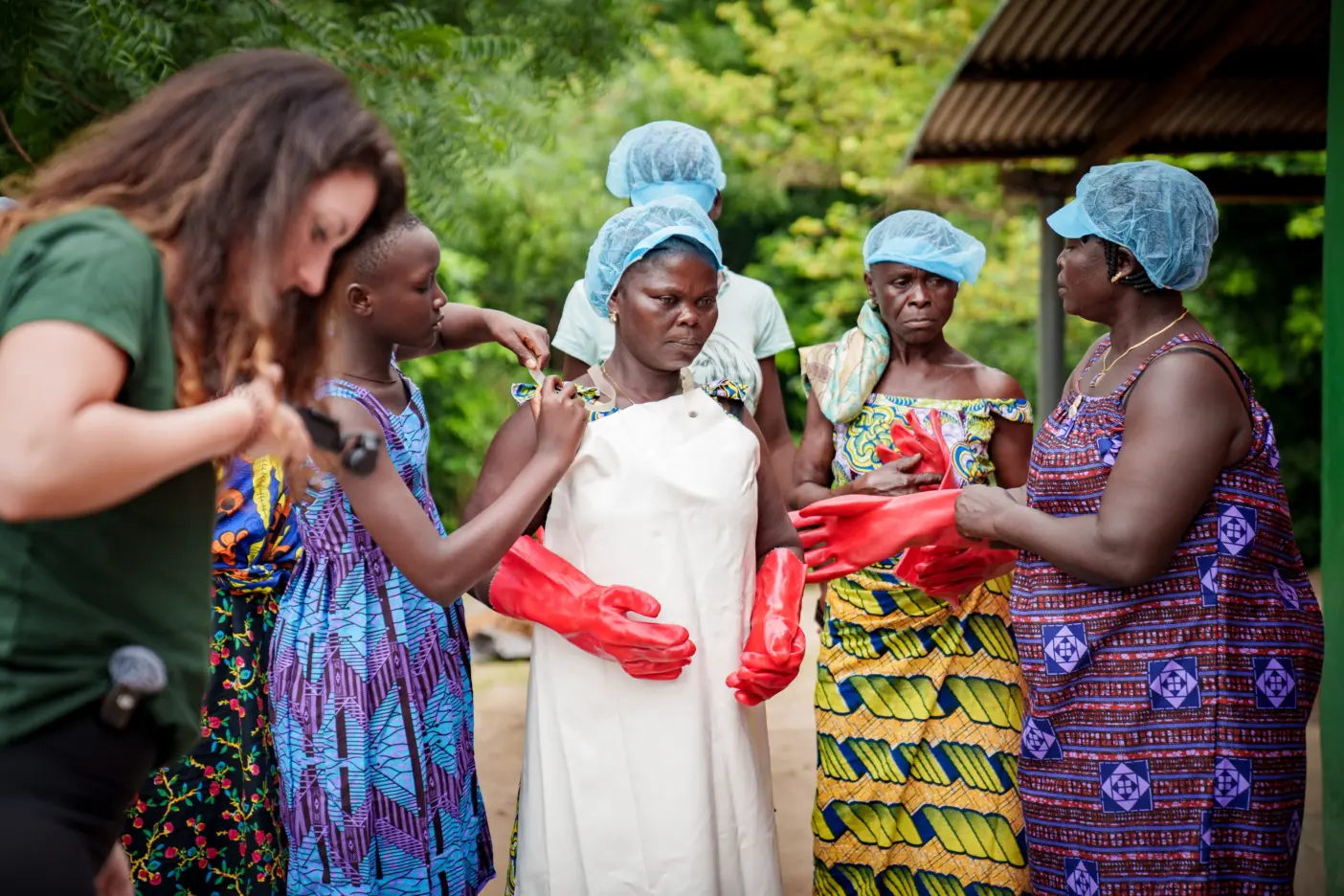
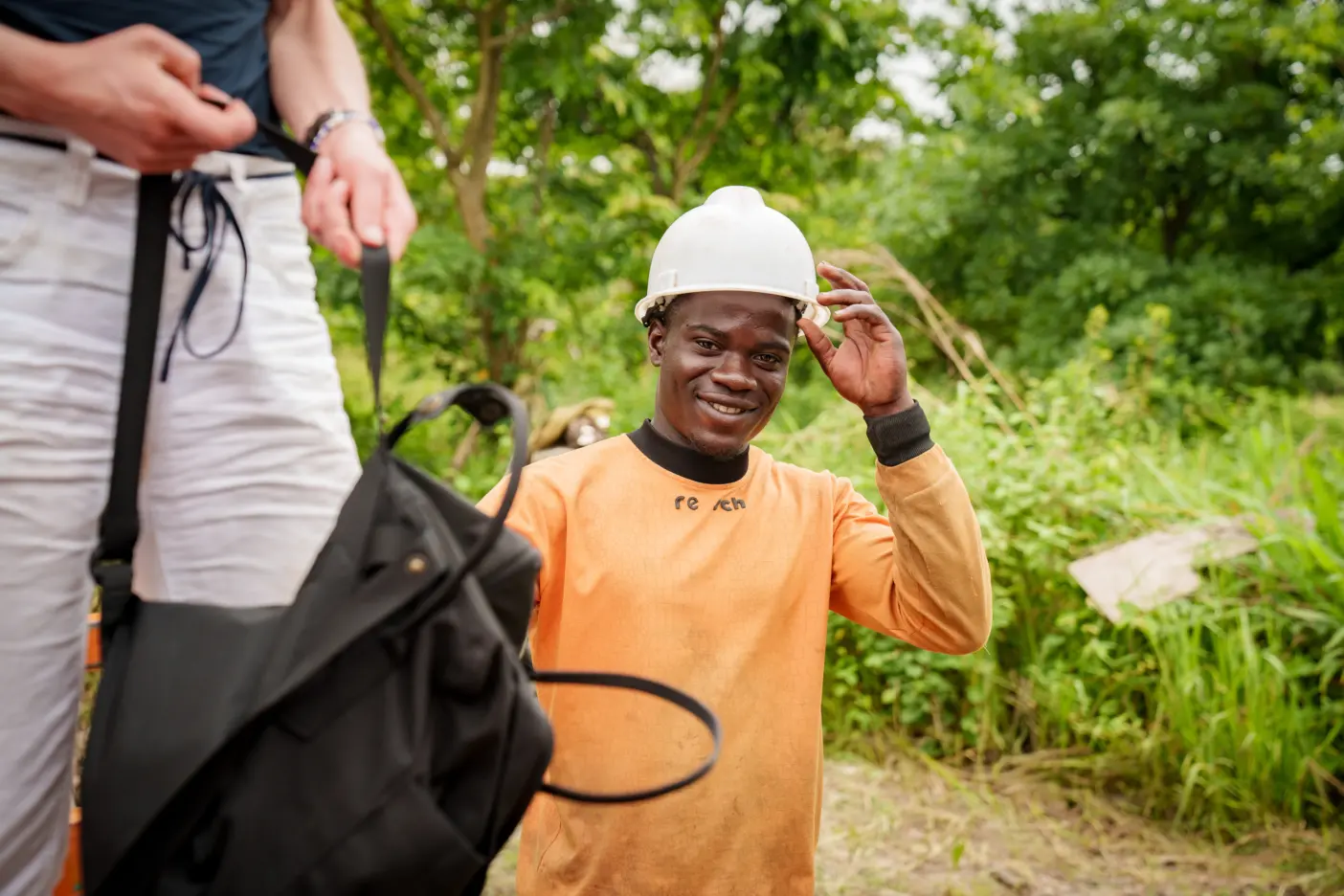
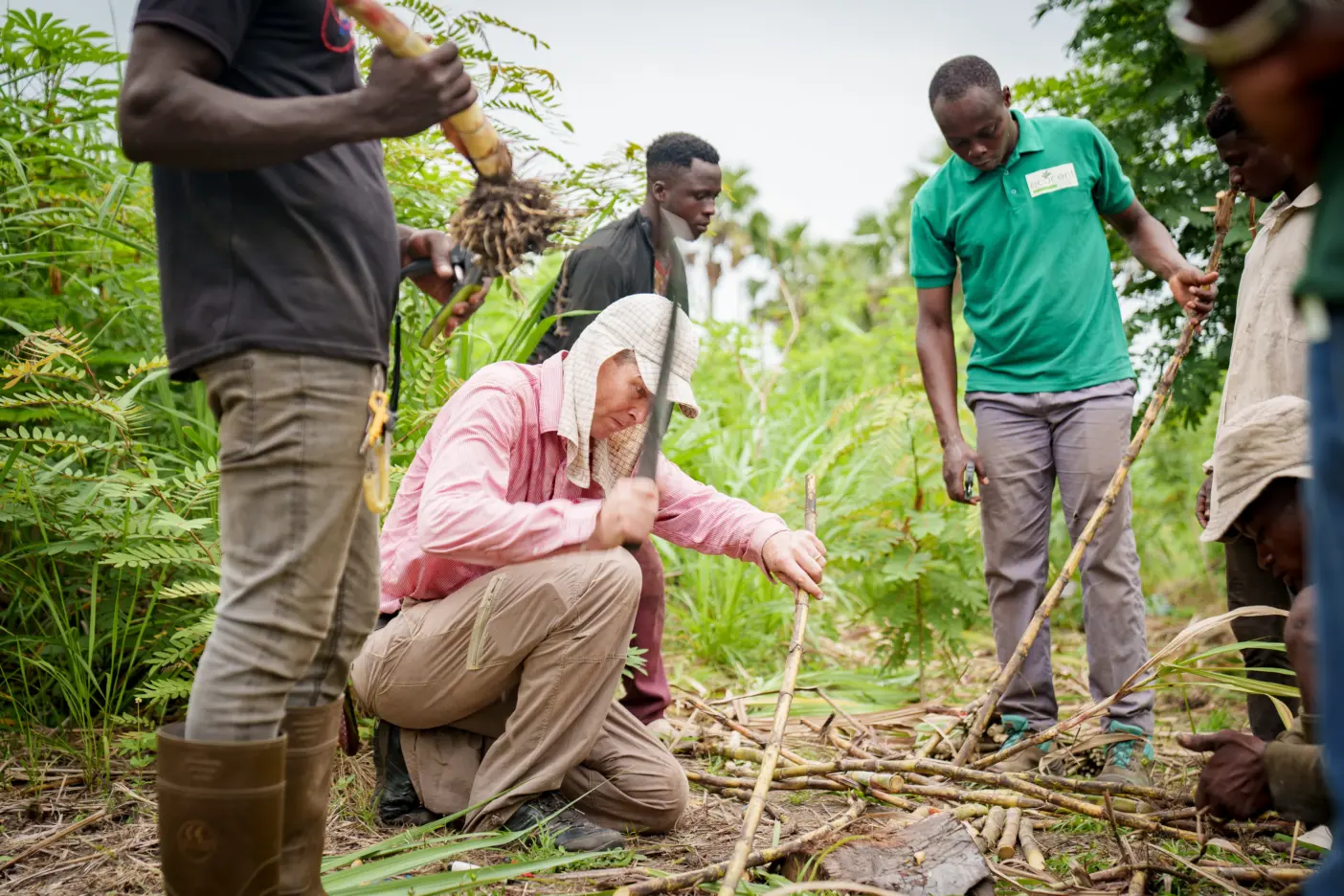
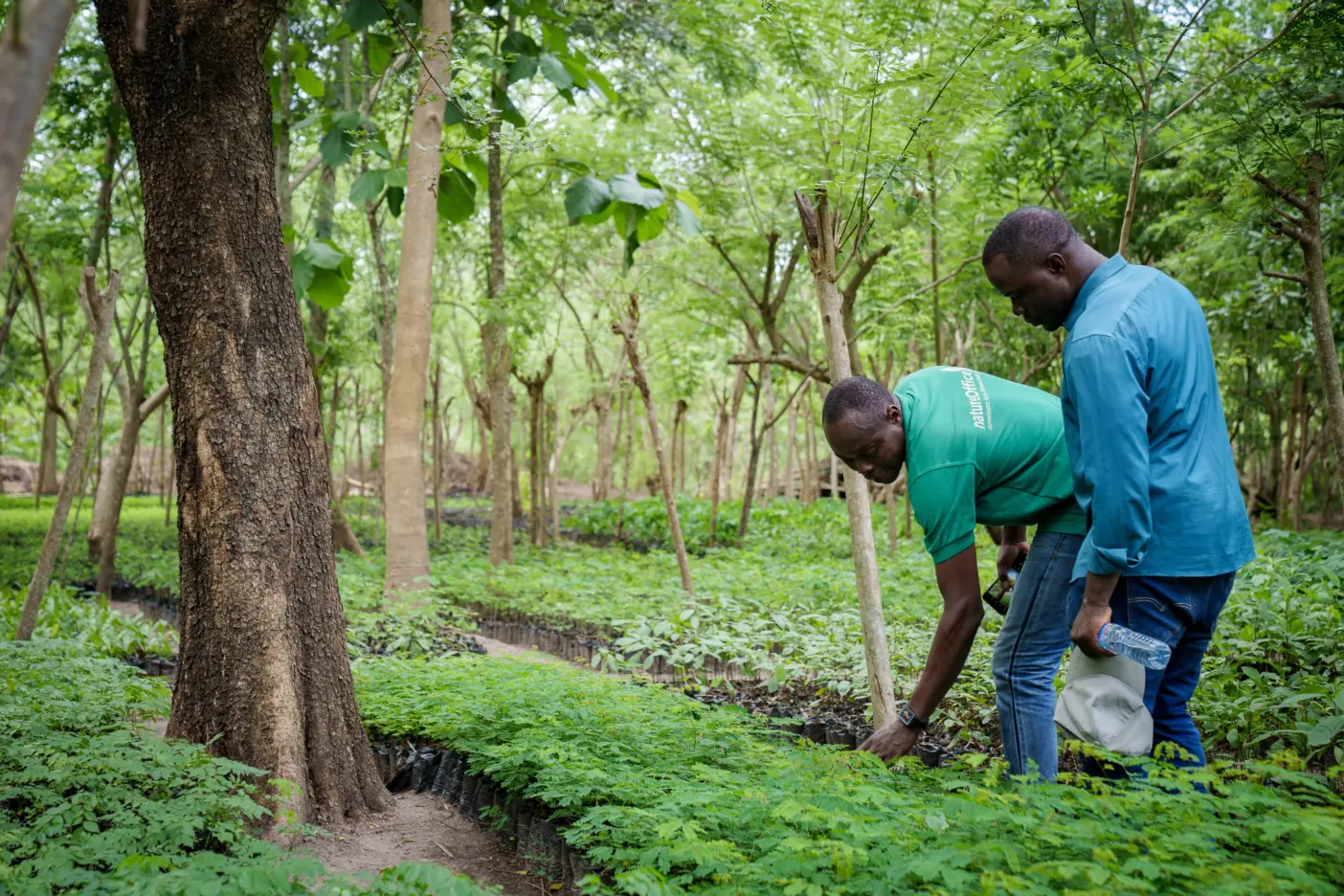
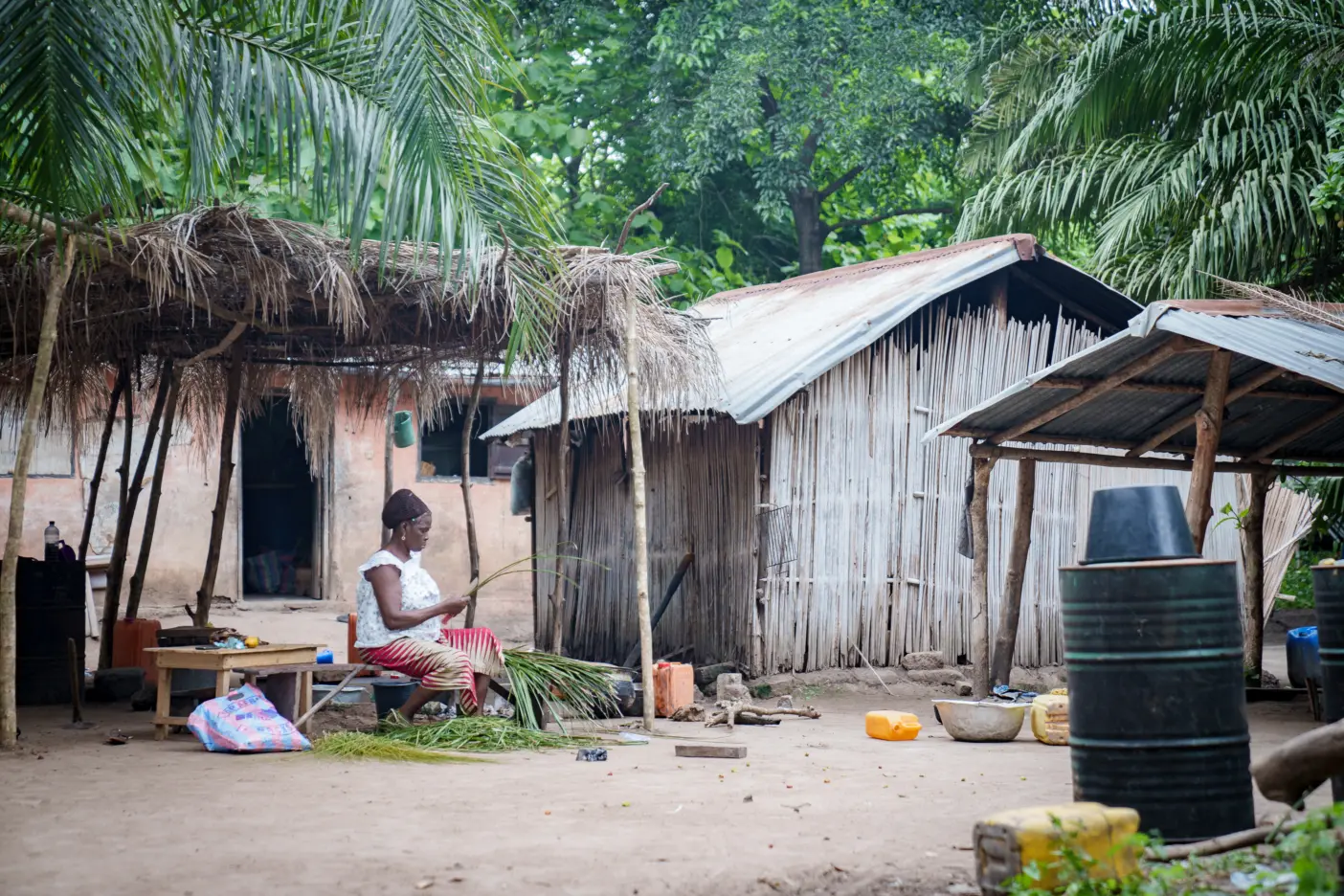
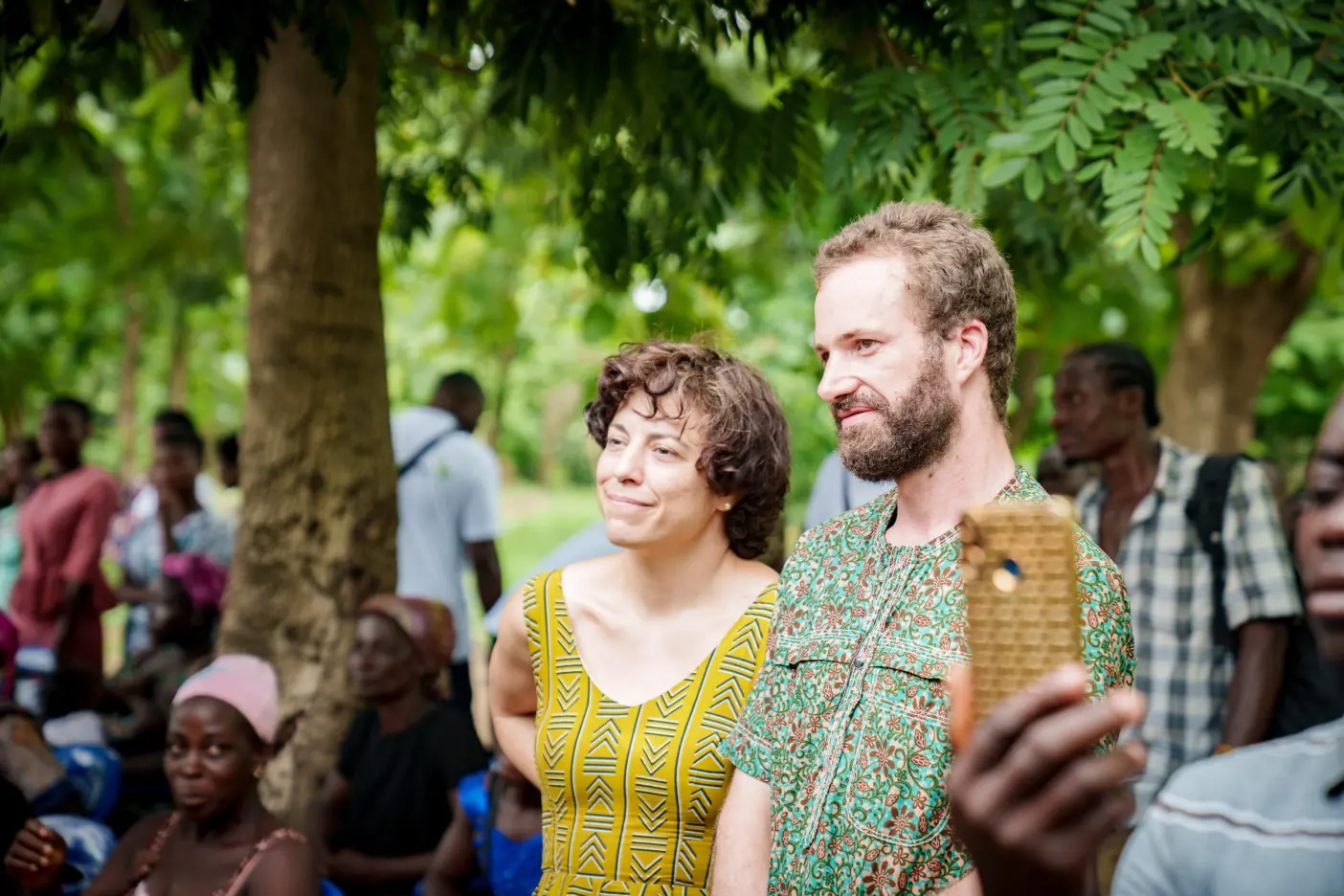
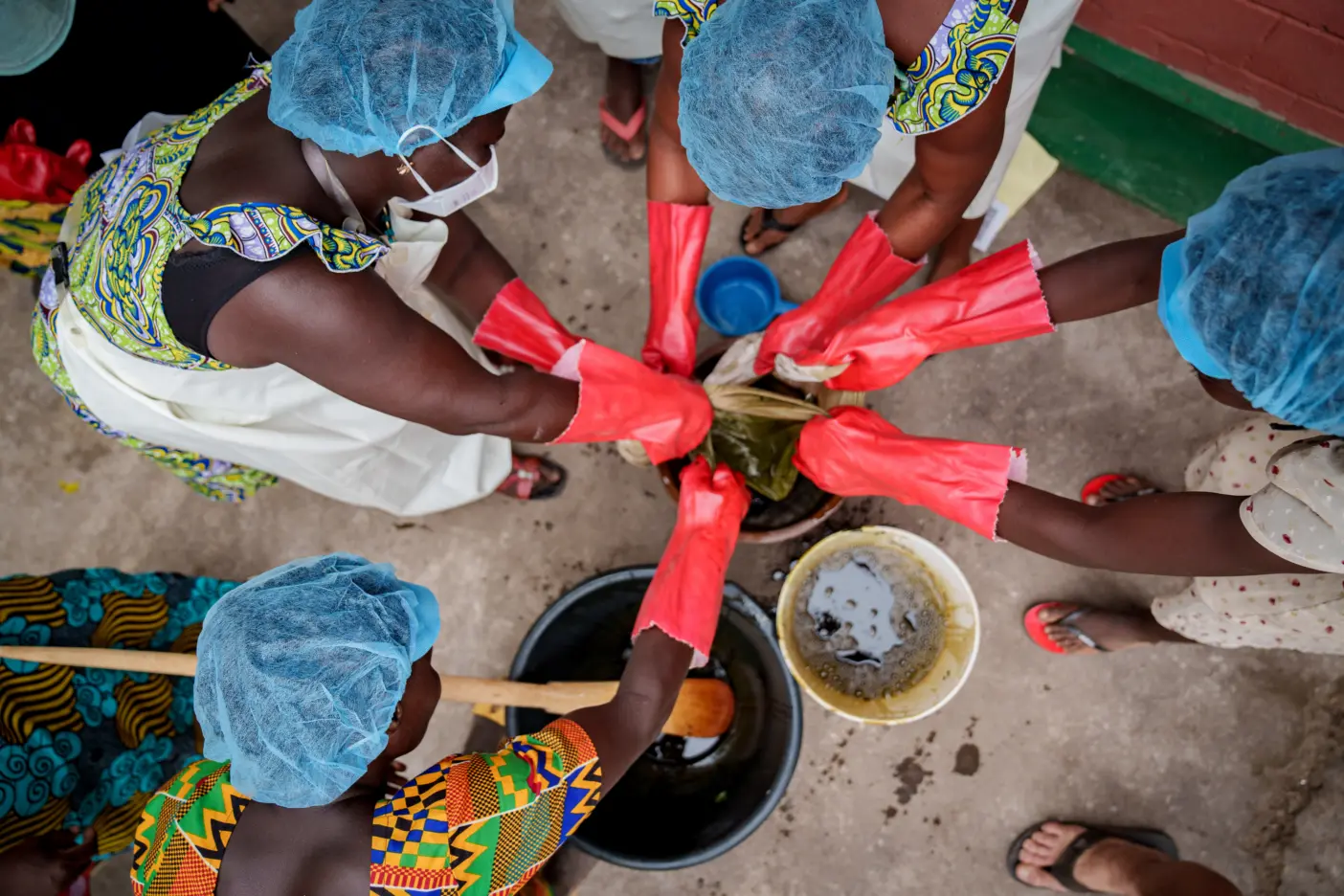
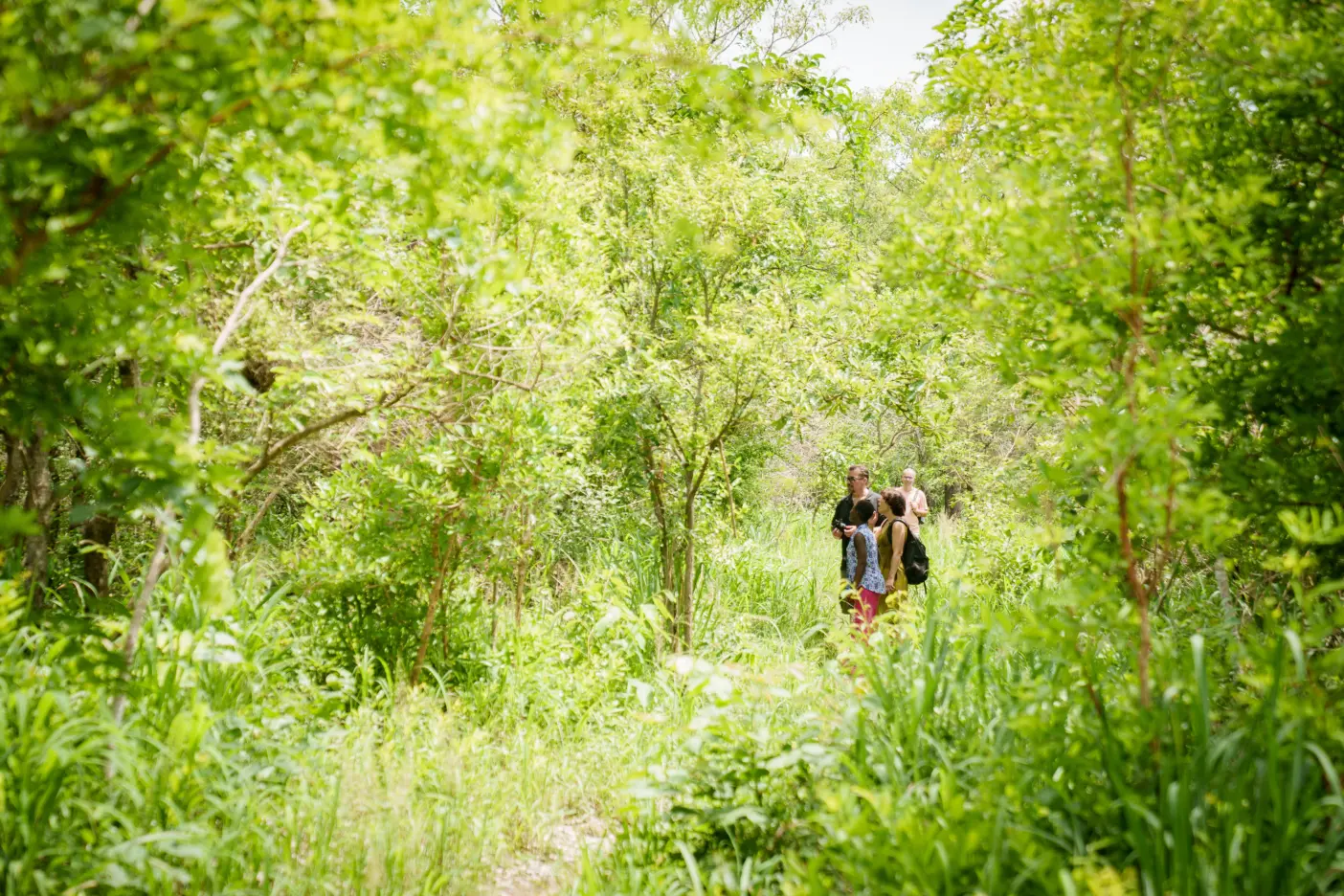
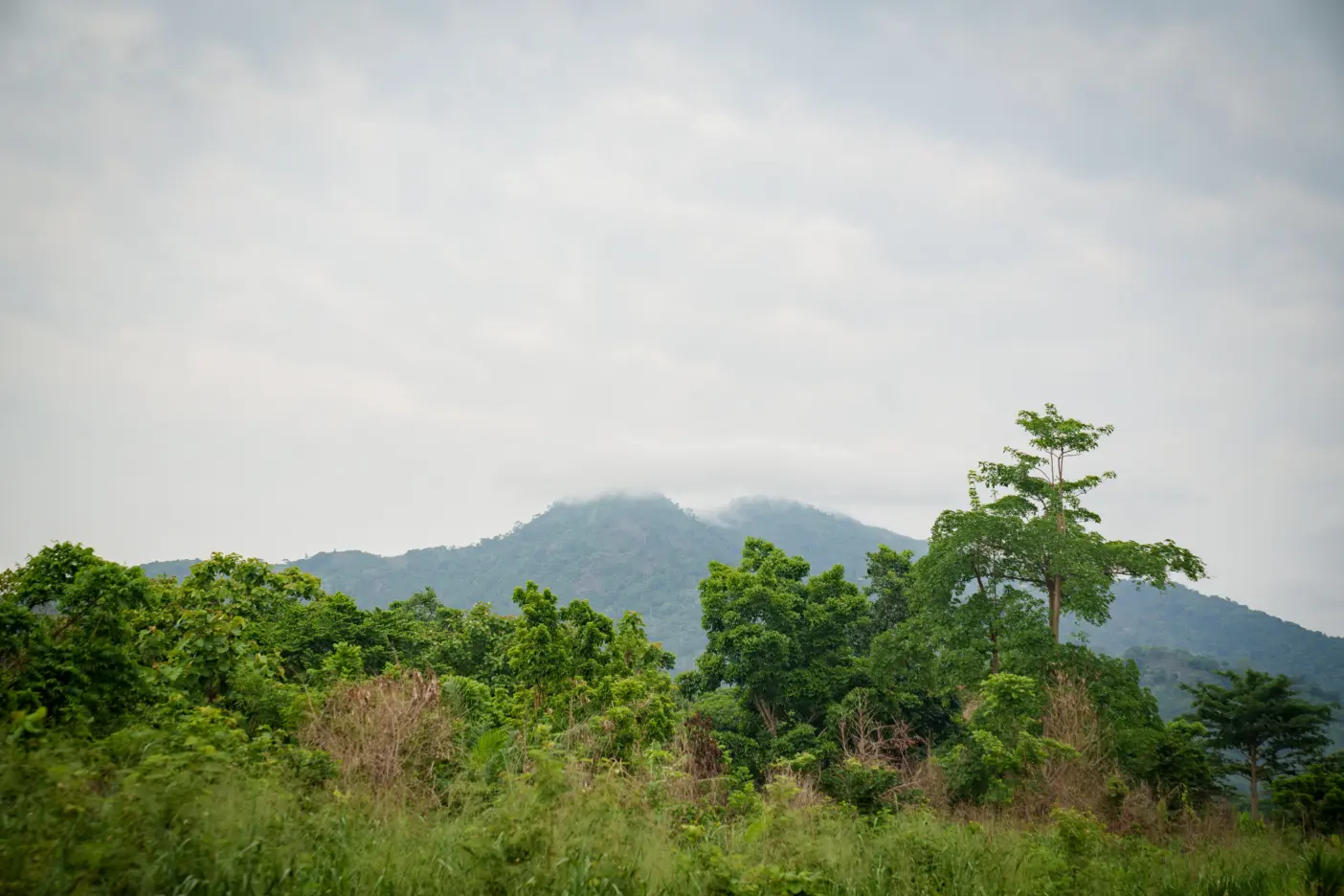
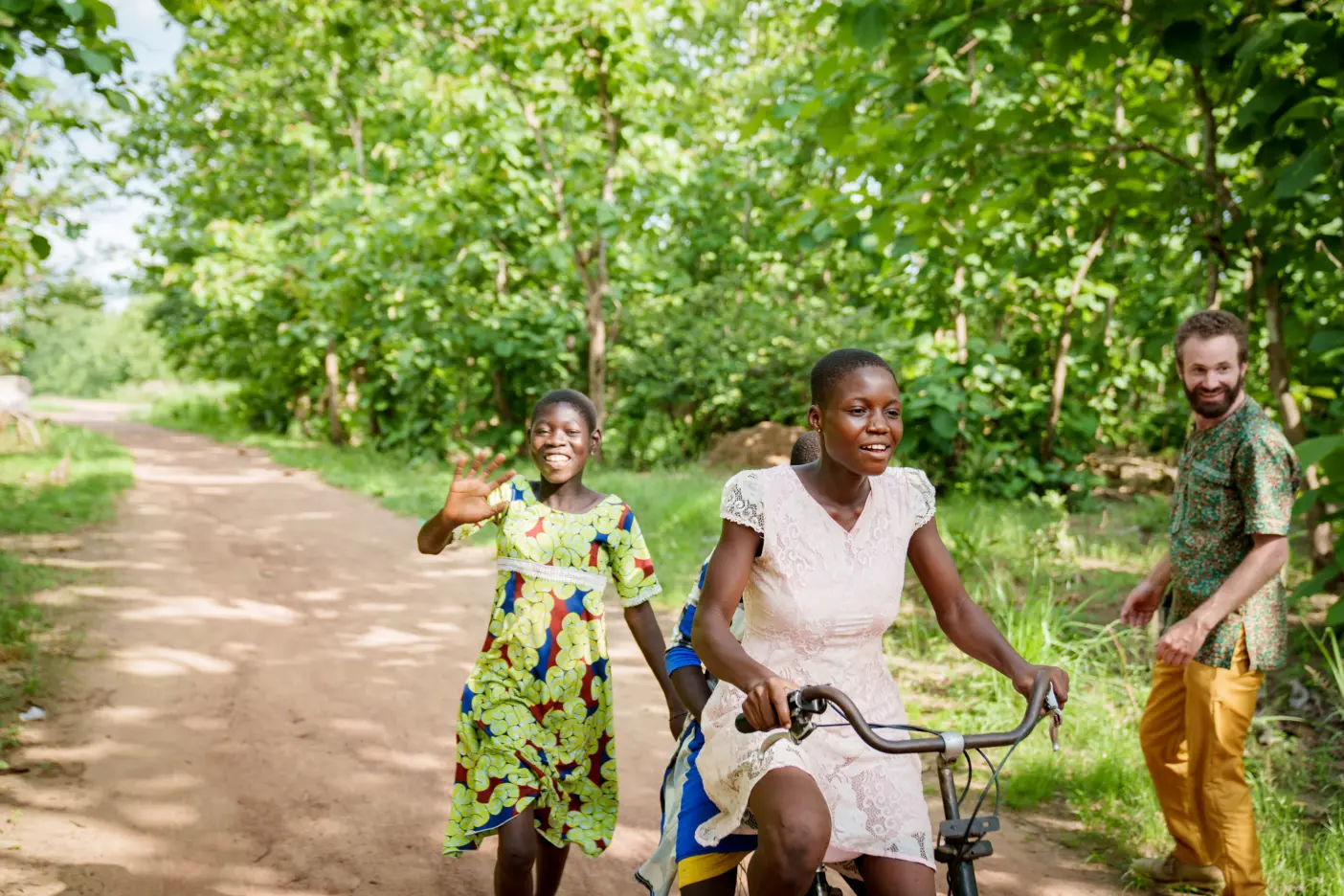
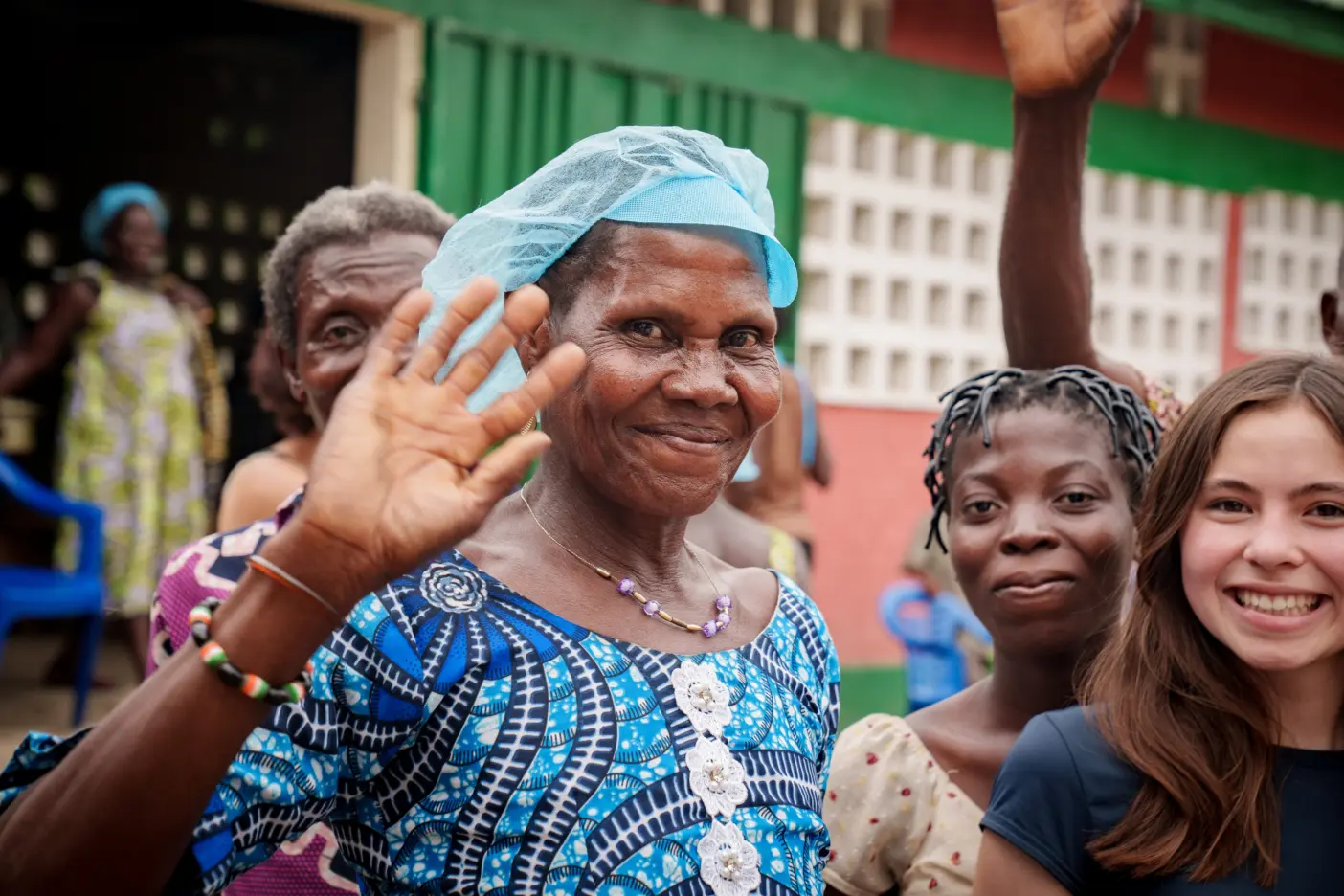
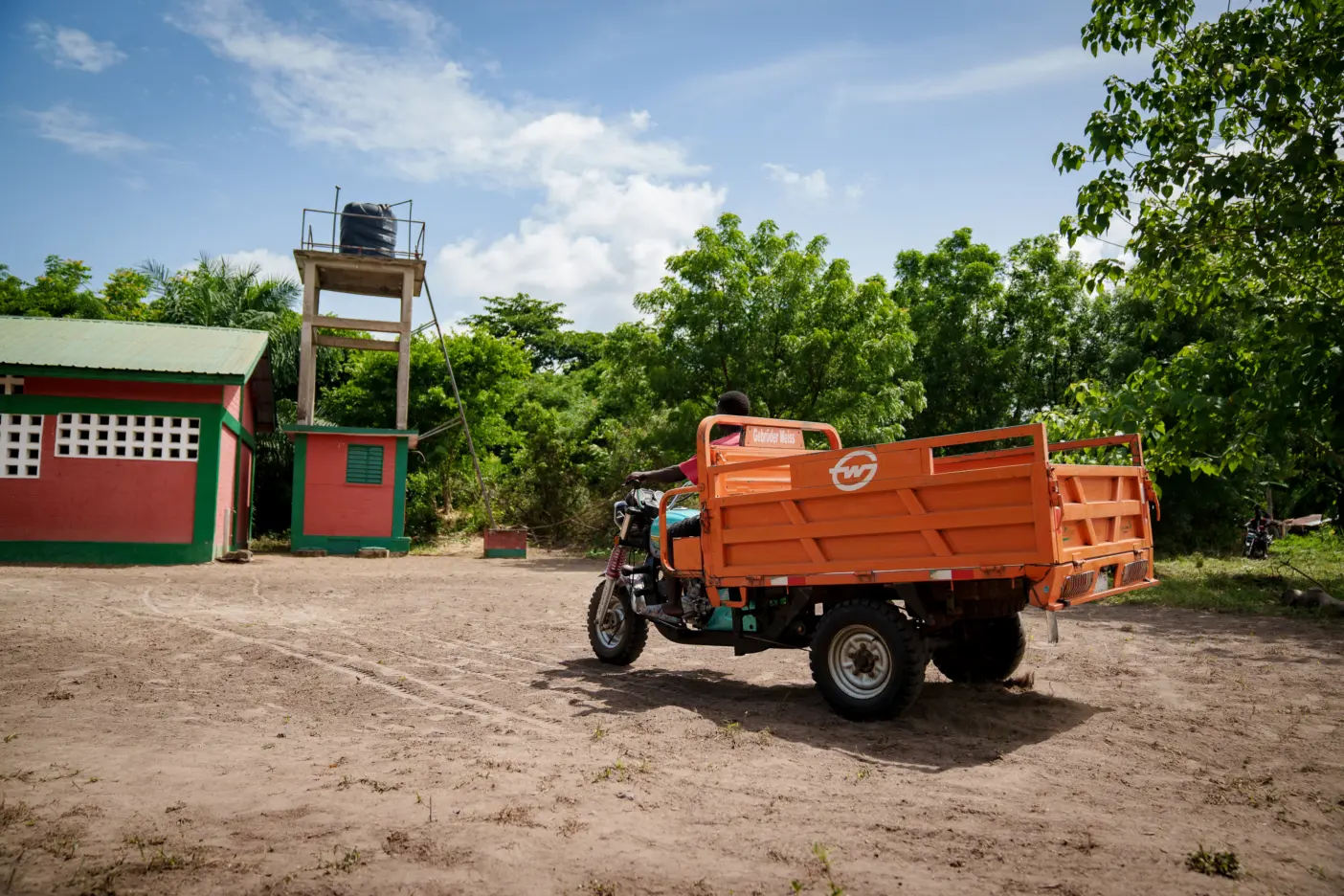
Holistic Climate Action:
From CO₂ Accounting to Our Own Forest Project
Climate action requires reliable data and clear structure.
Since 2008, natureOffice has supported companies in professional CO₂ accounting – from the Corporate Carbon Footprint (CCF) for entire organisations to the Product Carbon Footprint (PCF) for individual products.
Our calculations follow recognised standards such as the GHG Protocol and relevant ISO norms. This provides a solid foundation for ESG reporting, customer and banking requests, and sustainability reporting under the VSME standard.
Beyond accounting, we support emission reduction strategies, climate roadmaps and legally robust climate claims. The goal is not theory, but a structure that works in daily business operations.
A central part of our work is PROJECT TOGO, our own natural forest restoration project in West Africa. We have been active on the ground since 2010; the official project started in 2012. Initially certified under CarbonFix and later under the Gold Standard, the project is now continued under our own responsibility.
PROJECT TOGO combines forest restoration, CO₂ sequestration, biodiversity development and social measures. Training programmes, wells, clean cookstoves and local income structures are part of the project design. Multiple sustainability goals are addressed simultaneously.
Companies can use PROJECT TOGO either as a verified CO₂ offset solution or support it as a voluntary contribution. We clearly differentiate between these approaches and ensure accurate communication.
Consulting, software and practical project implementation are interconnected at natureOffice.
This creates CO₂ management that is measurable, transparent and built to last.



